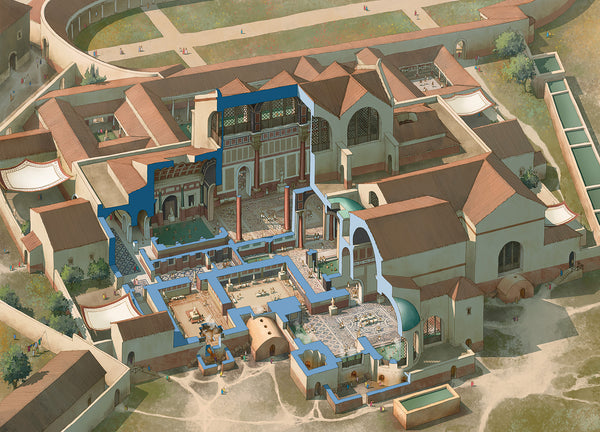Wrath of the Titans (2012)
While the remake of Clash of the Titans was not a critical success, it performed well enough at the box office to warrant a sequel. Wrath of the Titans was directed by Jonathan Liebesman (of Battle Los Angeles ‘fame’) and based on an original story that curiously enough bears some similarities to the main plot of the game Age of Mythology.
The story picks up some time after Clash of the Titans and has nothing to do with the original Perseus myth. Io has died and Perseus (Sam Worthington) lives a normal life as a mortal, with his son, in a village on the coast. But as Zeus (Liam Neeson) says in the opening voice over, he won’t be able to hide forever.
Zeus visits Perseus and says that since humanity stopped praying, the gods are growing weak and there will be consequences. Monsters will flood the earth and the gods will become mortal and die. This brief exchange sets the stage for the rest of the movie.
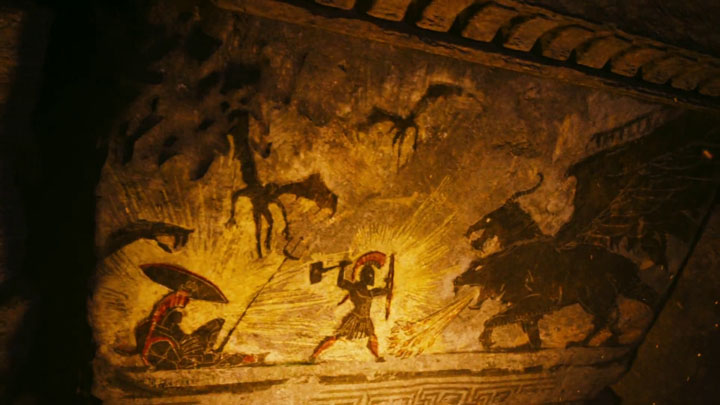
Hades (Ralph Fiennes) and Ares (Édgar Ramírez) conspire together and capture Zeus. The god is chained to rocks and then drained of his strength, which is used to empower the Titan Cronus, who was locked away in Tartarus – described as ‘the prison of the underworld’ – after the Titanomachy. (The basic plot as well as the look of Cronus, represented as a gargantuan creature made from molten rock, recalls the game Age of Mythology!)
Perseus’ village is attacked by a Chimera, which in the movie is represented as a fire-breathing, winged, double-headed, lion-like creature with a serpent as a tail. It’s not exactly comparable with classical representations of the creature, but it’s close enough and visually interesting. The action sequence that follows is neat and the resolution of the battle between Perseus and the monster is clever.
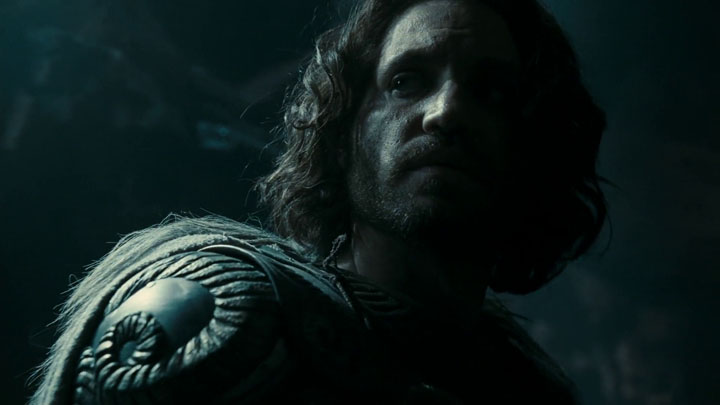
Poseidon tells Perseus that Zeus has been captured by Hades and Ares. Perseus now has to go to the underworld to liberate his father. Along the way, he runs across Andromeda (now played by Rosamund Pike), who is leading the army of Argos against the monsters. With the help of Agenor (Toby Kebbell), a mortal son of Poseidon, they eventually find their way to where Hephaestus (Bill Nighy) lives, who designed the prison.
At the entrance to the underworld, Ares shows up and kills Hephaestus, but not before he manages to unlock the entrance to the labyrinth. The labyrinth is an ever-shifting series of corridors and floors which recalled, to my mind, the inside of the pyramid in Alien vs Predator (2004). Inside, Perseus is separated from Agenor and Andromeda and runs into a Minotaur-like creature.
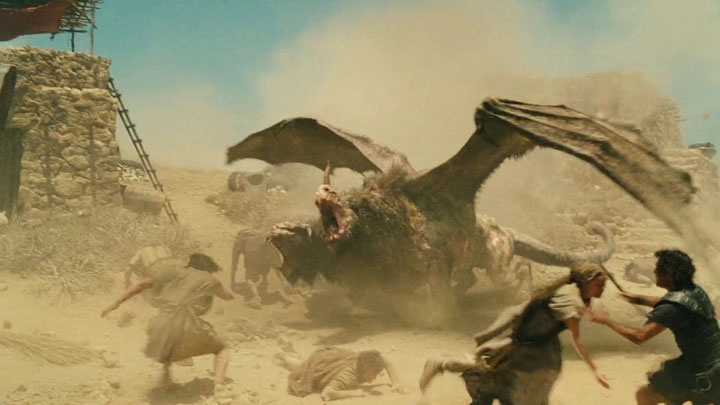
Perseus and his compatriots reach Zeus, where in the meantime Hades has had a change of heart. Ares attacks Hades, but Zeus, Perseus, and others manage to escape. Zeus is weakened, but Hades gives him some of his strength to reinvigorate him. Perseus fights and defeats Ares while Zeus and Hades partner up to fight alongside Andromeda’s army against Cronus and the machai (incarnations of battle) that have escaped from the underworld.
Having defeated and killed Ares, Perseus now possess Zeus’ thunderbolt, Hades’ pitchfork, and Poseidon’s trident, which together form the ‘Spear of Trium’, a magical weapon invented for the movie that is the only thing powerful enough to defeat Cronus. Armed with this weapon, Perseus flies on Pegasus’ back to meet Cronus and defeats him.
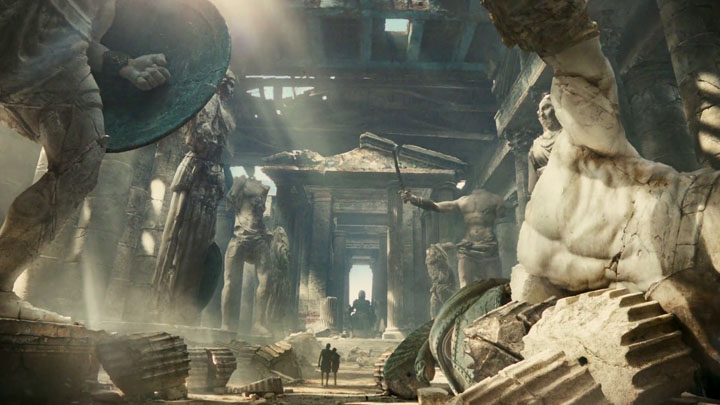
But it’s too late for Zeus. Having spent the last of his power, he tells Perseus that there ‘will be no more sacrifices, no more gods’, before resting his head against his son’s soldier and dying. (In this movie, when a god dies, he turns into sand that crumbles slowly – a great effect.) Of the Olympian gods, only Hades is left behind, though powerless now. Perseus now seems to accept his role as a hero, kisses Andromeda, and decides that his son no longer needs to be sheltered.
Compared to its immediate predecessor, Wrath of the Titans is a fairly lean movie. The creators probably realized that these movies are, at their core, about a hero who goes off to fight monsters, and the movie works well in that regard. Performances in the movie are good; even Sam Worthington seems to have gotten into the spirit of things.
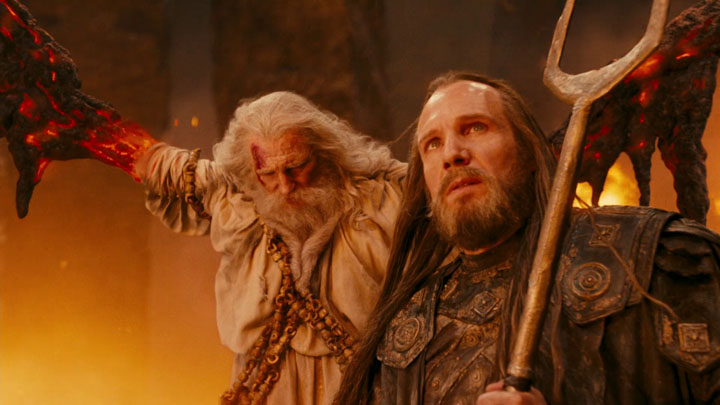
Like its predecessor, the movie works as light entertainment. The main problem I have, though, is that one of its central conceits – the death of the gods – has no relation to anything in Greek mythology. To the ancient Greeks, the gods were eternal, immortal. Yet, in this movie, the gods eventually all die (apart from Hades), an important theme in Teutonic mythology (e.g. the idea of a Götterdämmerung), but foreign as a concept to the Greeks.
A second sequel was planned, called Revenge of the Titans, but it currently seems to have been put on indefinite hold. I think killing off the gods was not a good idea, especially since Neeson and Fiennes seemed to work so well together. I have no clue as to what more they could do with the concepts behind the franchise at this point, but I guess we will have to wait and see.

